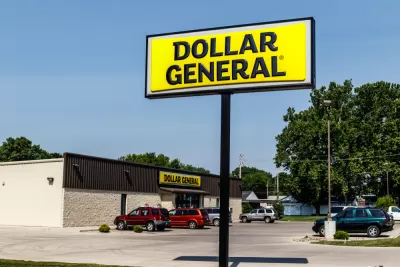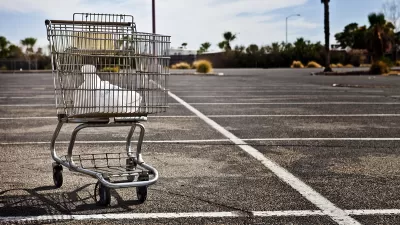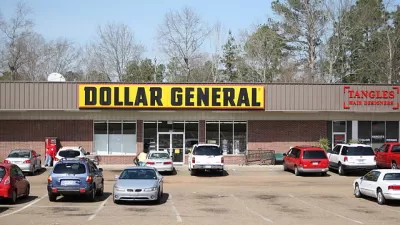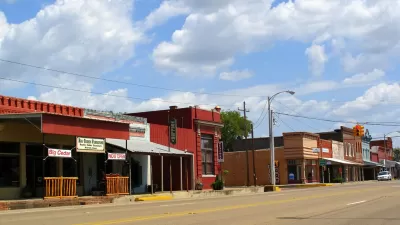Restrictions in North Tulsa are part of a backlash against the dollar stores flooding communities that are food deserts in need of real grocery stores.

Victor Luckerson writes about a law in Tulsa, Oklahoma that would curb the spread of dollar stores. The problem is especially acute in North Tulsa, which has nine dollar stores but not a single grocery store. The landscape has changed dramatically for an area once home to a thriving African American neighborhood filled with small businesses, known as Black Wall Street.
Starting in the late 1960s, Walmart lead to the demise of these businesses, along with the grocery stores that came later. Dollar stores came to North Tulsa to fill the void, as they have in communities across the country. And while these stores offer cheap products, they are not providing access to the healthy, fresh foods that residents need.
"The chains draw an ever-growing percentage of their sales from food, much of it high in calories and low in nutrients, like the Doritos in the central aisle at the store on Pine Street [in North Tulsa]. Stores that were once conveniences are now the only places to buy food in some communities," says Luckerson.
The efforts of a city councilperson representing North Tulsa resulted in a six-month moratorium on the construction of dollar stores in 2017. "In April 2018, the Council went further, requiring 'small-box' discount retailers in most of Ms. [Vanessa] Hall-Harper’s district to be built at least a mile apart, unless they carry at least 500 square feet of fresh fruits, vegetables and meats," writes Luckerson.
Other cities are looking to the Tulsa law as a model for taking back control of their economic development futures. And Luckerson says what is happening around dollar stores is part of a larger phenomenon of city leaders "pushing back against America’s winner-take-all economy — from New York City’s protests against Amazon to new laws in California and Boston limiting the expansion of app-based services like Uber and Airbnb."
FULL STORY: How a City Fought Runaway Capitalism and Won

Alabama: Trump Terminates Settlements for Black Communities Harmed By Raw Sewage
Trump deemed the landmark civil rights agreement “illegal DEI and environmental justice policy.”

Study: Maui’s Plan to Convert Vacation Rentals to Long-Term Housing Could Cause Nearly $1 Billion Economic Loss
The plan would reduce visitor accommodation by 25% resulting in 1,900 jobs lost.

Planetizen Federal Action Tracker
A weekly monitor of how Trump’s orders and actions are impacting planners and planning in America.

DC Extends Application Window for Outdoor Dining Permits
District restaurants will have until the end of November to apply, but businesses with permits in rush hour parking lanes must end operations on July 31.

Wind Energy on the Rise Despite Federal Policy Reversal
The Trump administration is revoking federal support for renewable energy, but demand for new projects continues unabated.

Passengers Flock to Caltrain After Electrification
The new electric trains are running faster and more reliably, leading to strong ridership growth on the Bay Area rail system.
Urban Design for Planners 1: Software Tools
This six-course series explores essential urban design concepts using open source software and equips planners with the tools they need to participate fully in the urban design process.
Planning for Universal Design
Learn the tools for implementing Universal Design in planning regulations.
Caltrans
Smith Gee Studio
Institute for Housing and Urban Development Studies (IHS)
City of Grandview
Harvard GSD Executive Education
Toledo-Lucas County Plan Commissions
Salt Lake City
NYU Wagner Graduate School of Public Service





























